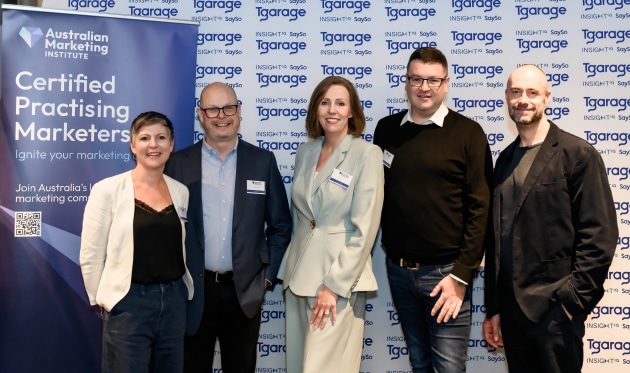The recent innovation forum hosted by the Australian Marketing Institute and research company, T Garage, explored the reality that in the rapidly evolving landscape of consumer goods innovation is now table stakes. Experts from three of Australia's Top 100 food and drink companies shared their experiences and confirmed innovation is not just a corporate strategy, but a mindset permeating personal and professional life.
The panel included Asahi Beverages GM of Innovation and Disruption, Susie White, Perfection Fresh chief Marketing and Innovation officer, Luke Gibson, and Kraft Heinz chief Marketing and Category officer APAC Developed Markets, Michael Magee.

Innovation catalyst
All panel members agreed that a company’s culture significantly influences its innovation potential, with White framing innovation as a “mindset of endless curiosity”.
Gibson highlighted the importance of creating space for experimentation, fostering a culture where people are allowed to “break and bend the rules”, and a sense of play.
“Play means there are no right and wrong answers, no set goals. It gets messy and unstructured, but that’s where creativity emerges and uncovers new insights and ideas.
“We tend to want to structure and order things, but that might not be the best way. No significant change happens by strictly adhering to established processes,” Gibson says.
White says while, “our customer is at the heart of everything we do”, is a mantra for marketers, it is hard focus to maintain.
“As innovators, best practice is to take a step back and try to be as category, brand, and product agnostic as you can be. It is quite challenging, but the first step is looking at the consumption occasion,” White says.
Once you can marry a consumption occasion with a need state and a product experience, it becomes a powerful opportunity.
Magee pointed out that innovation can also stem from unlocking a consumer or business insight on an existing product, driving faster growth.
“At the time M&M’s were ranked number one globally, it was number 22 out in the top 25 chocolate brands in the UK. The goal was set to get into the top five and we developed three key innovations to get there,” Magee recounts.
“We often look for the Holy Grail to propel a product when it is much more simple things that work.”
The team developed a red, white, and blue pack in a nod to the Union Jack that was launched during the Queen’s Jubilee. They ran a campaign with a movie theatre company, which gave away a movie ticket if you bought two packets of M&M’s during a time of cost-of-living hardship, and another colour specific pack to support Brazil during the World Cup.
“These weren’t earth shattering things to do, but they all reinforced what the product was about – chocolate, fun, and sharing – and linked them to people’s memories. There were other strategies, but these three were what got M&M’s into the top five,” he says.
Transformative tech
While AI can be a game-changing tool, the panel agreed human intuition and strategic thinking remain crucial.
White says it won’t be jobs taken by AI, but by people who can use AI effectively. She outlined how AI can greatly reduce the innovation pipeline timeframe and have a fundamental role in how innovation is carried out.
“As an innovator, using AI dramatically reduces the time it takes to see an idea worked through, which frees me up to do the heavy lifting around other parts of building an innovation pipeline,” she says.
But Magee cautioned against seeing innovation – and AI – as a silver bullet, saying a nuanced approach is needed to understand each innovation’s specific role.
“Innovation is often risky and potentially dilutive, so be clear about what role it plays in your growth strategy,” he says.
Gibson urged those in the room to stay curious, challenge assumptions, and remain adaptable.
“Intuition is your brain telling you that you know something right,” he says.
Ultimately, the session reinforced that innovation is not about grand, disruptive gestures but continuous, strategic adaptation, an “intricate dance” of understanding consumer needs, accepting technological disruption, and embracing organisational agility.
Kim Berry attended the event as a guest of AMI and T Garage.
This article first appeared in the June/July 2025 edition of Food & Drink Business.







